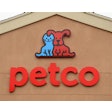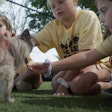Lallemand’s first international seminar dedicated to pet nutrition gathered about 60 professionals from the pet food industry in Verona, Italy, on April 4, 2019. The event focused on microbial nutritional solutions for pet well-being. It offered a great combination of scientific insights on the key role of the gut microbiota in pet health and well-being from international experts in animal and human nutrition, with technical and regulatory information on the use of yeast-based ingredients to formulate innovative pet food nutritional solutions. The event provided a great platform for communication and also broadened the horizons of practitioners, inspiring innovative applications of microbial solutions in the pet food business.
Digestion, behavior, anxiety and immune defenses all have a common link to the digestive microbiota. This is increasingly well understood and accepted in humans. Professor Vassilia Théodorou (INRA, France), Dr. Robert Falconer-Taylor (Center of Applied Pet ethology, Scotland) and Professor Giacomo Biagi (University of Bologna, Italy) demonstrated it is also true for pets through a series of inspiring lectures.
Summaries of pet food probiotics conference presentations
Professor Théodorou kicked off the session with an enlightening presentation on the gut-brain microbiota communication. Science has come a long way in the relationship that links the brain and the gut since Pavlov’s dog experiment. There is now clear evidence that it is a two-way communication route that also involves a third player: the microbiota. Stress can alter the gut homeostasis — and, therefore, the microbiota habitat — leading to microbial populations shifts. Conversely, there is evidence that the microbiota can also influence the gut, and — via the gut associated nervous system (or GALT) — emotions and well-being.
Professor Théodorou estimates that all of us, have experienced the tight link between our guts and brain. There is evidence of a link between emotions, behaviors and intestinal troubles. Stress, for example, increases gut permeability. This has been shown in both animals and humans. Then, what about cats and dogs? It now appears that cat and dog microbiota are very comparable to that of humans (Deng and Swanson, 2015) and similar cross talk can be seen.
How can this be applied to help improve well-being? Can we act on the gut-brain cross talk? Professor Théodorou presented studies indicating the modulation of the gut microbiota by certain probiotics or prebiotics (see definitions) have shown to be beneficial for the intestinal barrier, and may contribute to improving stress-related disorders, changes in behavior and mood, which opens doors for benefits to overall well-being of mammals, including pets.
The gut-brain microbiota connection was further explored by pet behaviorist Dr. Falconer-Taylor, who talked the audience through brain function and emotion systems in dogs. When excessive or chronic, fear and anxiety can lead to serious health troubles. Dr Falconer-Taylor showed further clinical evidence of certain probiotic yeast and bacteria benefits on anxiety and behavior, in humans but also in dogs. For instance, the probiotic yeast Saccharomyces cerevisiae boulardii, well documented in humans, benefits chronic gut disorders in dogs (D'Angelo et al., 2018). He concluded there is evidence of the influence of the gut microbiota on dogs’ sociability. The microbiota appears essential for social development, social behavior, learning and memory in mammals, reminding us that the symbiotic life between animals and bacteria goes back to the dawn of evolution.
Another key role for the microbiota is the modulation of the immune defenses. Professor Giacomo Biagi is an expert in animal nutrition. He reviewed the effects of various natural feed components on immunity, focusing also on probiotics and prebiotics.
Few studies are available on pets, and very few probiotic bacteria are authorized in Europe for use in pet food. Professor Biagi’s team recently conducted a study to evaluate “the effects of an association of yeast fractions from different yeast strains (YANG, Lallemand Animal Nutrition) on the intestinal ecosystem of adult healthy dogs.” The trial involved an in vitro part, whereby the yeast derivative was incubated with canine fecal inoculum, and an in vivo trial involving 16 adult dogs (fed YANG or control diet). Dog feces was analyzed at three and four weeks into the trial. The results indicate benefits of the yeast derivatives on:
- Dogs’ gut microbiota: the in vitro analysis shows higher levels of Lactobacilli and Bifodobacteria as well as a lower pH with the yeast derivative. The acidic environment helps inhibit the development of undesirable bacteria and favors the growth of the beneficial ones, showing a unique indirect prebiotic effect of the yeast derivative products.
- Dogs’ natural defenses, through a higher level of IgA antibodies detected in the feces of dogs fed YANG. IgAs are a well-recognized biomarker of immunomodulation and play a key role in mucosal immunity by inhibiting the attachment and penetration of bacteria in the gut lumen, increasing mucus secretion and preventing inflammatory reactions that would cause damage to the epithelial tissues.
Professor Biagi concluded the innovative association of yeast fractions could improve the composition of canine microbiota and, potentially, help reinforce the natural defenses of adult dogs.
















